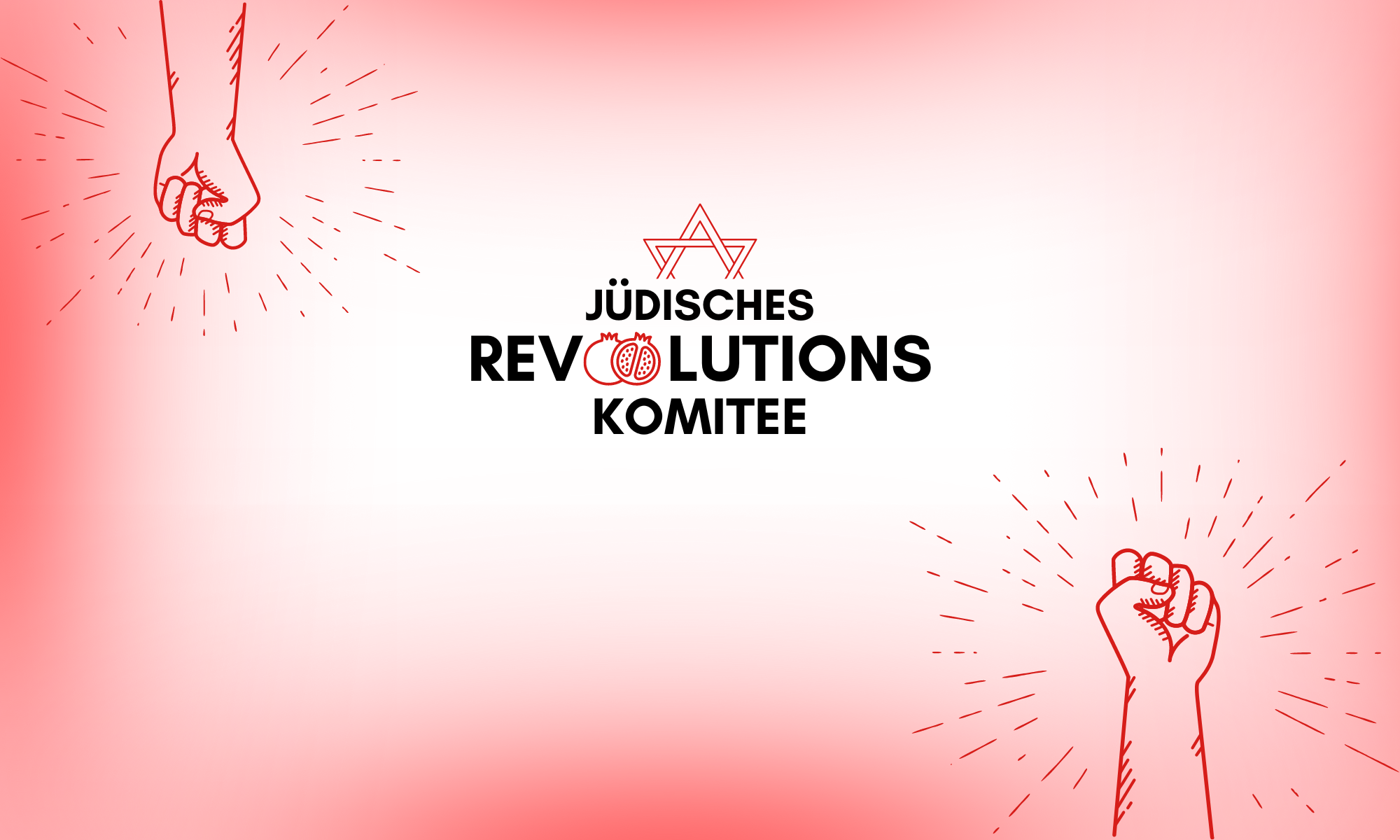Im aktuellen Diskurs um Palästina/Israel, scheint uns, dominieren Stimmen, die im Freund-Feind-Schema hängen bleiben, mit der Strategie “wer am lautesten schreit, gewinnt”. Unserer Auffassung nach erreicht dieses Vorgehen weder nachhaltige Sicherheit noch echte Freiheit – für niemanden. Daher bemühen wir uns um Schritte zu einem vereinenden Narrativ, welche das Leid & Verantwortung aller Seiten anerkennt. Dies ist ein Grundstein sowohl für eine solidarische Diaspora als auch für ein freies, sicheres Palästina/Israel.
Ein Problem ist der polarisierte Diskurs, welcher einem vereinenden Narrativ und echter Solidarität oft im Weg steht – um ein Beispiel zu nennen: für die einen ist die Benutzung von Begriffen wie “Genozid” oder “Apartheid” zur Beschreibung der Lage in Palästina/Israel schon antisemitisch – für andere ist die Ablehnung dieser Begriffe schon Ausdruck von Kolonial-Rassismus. Meist verstehen verschiedene Leute unter demselben Begriff völlig unterschiedliche Sachen, und eine Verständigung zwischen den verschiedenen Lagern scheint unmöglich. Gleichwohl sind Begriffe aber wichtig zur Benennung von Unrecht & Verantwortung und damit Bedingung für Solidarität und Gerechtigkeit.
Mit diesem Glossar möchten wir einige Buzzwords aus der Debatte aufgreifen, und ihre verschiedenen Facetten beleuchten. Dabei stehen zum Teil ganz unterschiedliche Interpretationen von ein und demselben Begriff nebeneinander – verbunden mit dem Anstoß, die ewigen Einseitigkeiten in der Debatte fallen zu lassen und die Einstellung der “Gegenseite” etwas mehr zu verstehen. In einigen Fällen versuchen wir die Synthese verschiedener Narrative – wobei dies manchmal nur/schon bedeutet, die Gleichzeitigkeit verschiedener Narrative auszuhalten.
Wir denken, es ist an der Zeit, einseitige Parteinahme zu überwinden.
Zionismus, der
Basiert auf der Bezeichnung des Berges “Zion”, auf dem Jerusalem/Al Quds erbaut ist. Die Wortendung “Ismus” bezeichnet eine ideologische Strömung, welche auf dem entsprechenden Wort basiert (z. B. “Rasse” → Rassismus)
Kann die Bedeutung um 180° Wenden:
(a) Garant der Sicherheit für Juden*Jüdinnen in Form eines Nationalstaates angesichts weltweiter antisemitischer Genozide und Gewalt; Zionismus. Wurde maßgeblich von ashkenazischen Jüdinnen_Juden im Kontext europäischer Gewalterfahrung geprägt, erhielt aber auch schon vor der Shoah an Zuspruch unter westasiatischen Jüdinnen_Juden angesichts des Aghet (Genozid an Armeniern durch das Osmanische Reich 1915-1917).
(b) Faschistische Ideologie von jüdischer Überlegenheit sowie kolonialrassistisches Projekt Ashkenazischer Juden in Palästina/Israel. Die gängige, kolonialrassistische Phrase “Ein Land ohne Volk für ein Volk ohne Land” aus den Anfängen der zionistischen Nationalbewegung findet sich teilweise in jüdisch faschistischen Strömungen wieder (bspw. seit den 80er Jahren im Kahanismus).
(c) Das Judentum und die damit verbundenen Traditionen, Gebete und Bräuche sind verwoben mit Eretz Ysrael (alt-hebr. Begriff aus der Tora für das jüdische Land). Viele Lehren, Geschichten und Regeln des Judentums sind geschichtlich betrachtet mit dem Land verwoben, in welchem diese ethnoreligiöse Gruppe ihren Ursprung hat. In der Vergangenheit wurde mit ‘Rückkehr nach Zion’ auch mehrere Einwanderungsbewegungen bezeichnet, bspw. eine bei der seit 538 v. Chr. jüdische Menschen über einen Zeitraum von etwa 110 Jahren aus dem babylonischen Exil nach Judäa zurückkehrten.
nicht zu verwechseln mit:
real-existierende Zionismus, der:
Im Namen des Zionismus wurden sowohl europäische und nordafrikanische Jüdinnen_Juden vor den Nazis während der Shoa gerettet als auch vielfältige Menschenrechtsverletzungen gegenüber Palästinenser*innen seit 1947 verübt. Im Kern könnte mensch Zionismus als eine Bewältigungsstrategie von Antisemitismus verstehen, welche durch einen Nationalstaat Sicherheit für Juden*Jüdinnen (als eine verfolgte Gruppe) zu erreichen versucht. Diese Strategie bringt es mit sich, dass manche ihrer Anhänger*innen in rassistischen Nationalismus abdriften.
In diesem Fall befand sich eine verfolgte Gruppe in einer zunehmend antisemitischen und nationalistischen Welt, und versuchte, Selbstbestimmung und Freiheit vor Verfolgung mit einem Nationalstaat zu verwirklichen. Und jeder Nationalstaat dieser Welt wurde mit Gewalt durchgesetzt und von kolonialistischen Strukturen geprägt.
Intifada, die
aus der arabischen Bezeichnung für ‘Schütteln, Beben’; im politischen Zusammenhang: ‘Rebellion, Aufstand’
(a) kann sich auf jegliche Rebellion beziehen, wie z. B. Irakische Intifada 1952 und mehrere Intifadas in West-Sahara zwischen 1970 und 2005; meistens gemeint sind die Palästinensischen Aufstände in den Jahren 1987-1993 (‘Erste Intifada’) und 2000-2005 (’Zweite Intifada’); palästinensischer militanter Widerstand gegen israelische Besatzung Palästinensischer Gebiete bzw. Palästinas sowie gegen die Unterdrückung von Palästinenser*innen in israelischen Gebieten; der militante Widerstand wurde gewählt angesichts wiederholtem und jahrzehntelangem Scheitern diplomatischer Bemühungen, als auch angesichts der militärischen Dominanz Israels sowie weltweiter Gleichgültigkeit gegenüber ausbleibender Palästinensischer Autonomie/Souveränität und andauerndem palästinensischen Leid.
(b) kann sich auf eine antisemitische Terror- und Vernichtungskampagne gegen alle Jüdinnen*Juden und Israel als Ganzes beziehen; auch wenn nicht immer als Intifada bezeichnet, wird dieses Verständnis von Intifada u.a. von Hamas, Hizbolla und der Iranischen Regierung vertreten und umgesetzt.
Ob Intifada als “Widerstand gegen die Unterdrückung von Palästinenser*innen” oder “Terrorismus gegen Jüdinnen*Juden” verstanden wird, hängt maßgeblich davon ab, welche Akteure gemeint sind: z.B. Steine-Schmeißende Jugendliche oder eine hochgerüstete Hamas. Auch spielt eine Rolle, inwieweit die Unterdrückung von Palästinenser*innen durch Israel überhaupt als gegeben anerkannt wird bzw. inwieweit antisemitische Vernichtungsintentionen von Hamas & Co überhaupt als Facette von Intifada anerkannt wird. Und schließlich spielt noch die Frage eine Rolle, inwieweit mensch Militanz & Gewalt als politisches Mittel legitim findet.
Das Ausblenden dieser Komplexität verleitet dazu, daß die Nutzung vom Intifada-Begriff missbraucht werden kann: wird der Begriff pauschal als Terror-verherrlichend verteufelt, gerät ggf. das andauernde palästinensische Leid aus dem Blick. Wird nur der Widerstands-Aspekt betont, gerät ggf. das israelische Leid aus dem Blick.
